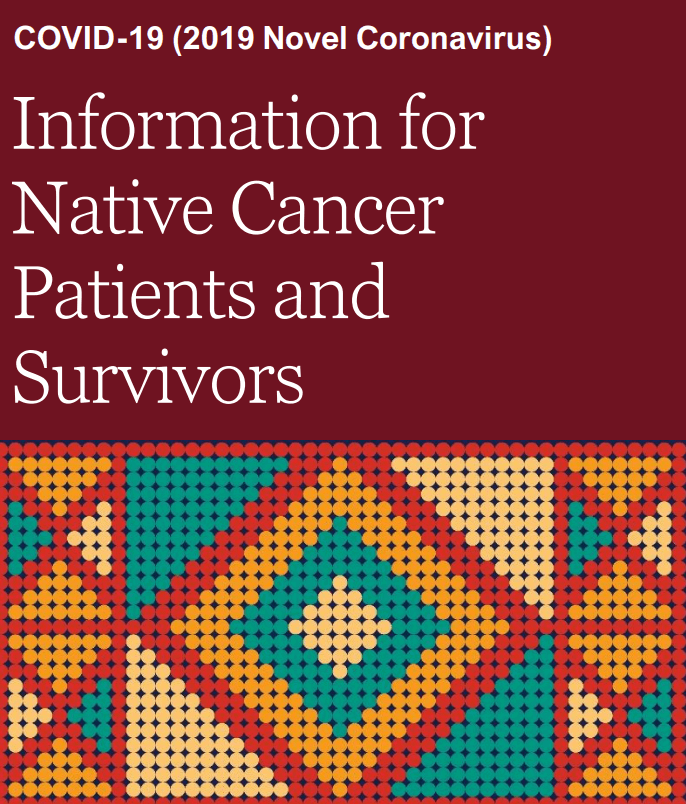Contents
Individuals with cancer or cancer survivors have a higher risk for serious illness from COVID-19 due to weakened immune systems from cancer or its treatment.1,2,3,4 It is important for cancer patients, survivors, and those who are in close contact with them to take precautions.
Are all cancer patients at risk for COVID-19?
All cancer patients are at risk, but the patients most at risk are:
- People with blood malignancies like non-Hodgkin lymphoma, chronic lymphocytic leukemia, acute myeloid leukemia, acute lymphoblastic leukemia and multiple myeloma.1
- People in active treatment—surgery, radiation, chemotherapy, immunotherapy—for any type of cancer.
- People who have undergone bone marrow transplants.1
- People who are immunosuppressed including those who:
- Have low white-cell or low lymphocyte counts.
- Are taking immune suppressive agents (such as prednisone).
- Have been told by their healthcare provider they are immunosuppressed.
Are cancer survivors at risk of contracting COVID-19?
The after-effects of cancer and cancer treatment, such as a suppressed immune system, may be long term and do not end when people finish their last course of therapy or leave the hospital after surgery.
All cancer patients and survivors, whether currently in treatment or not, should talk with a doctor who understands their situation and medical history.
How do I keep myself and my family safe?
To keep you and your family safe:
- Avoid going to gatherings with large numbers of people; follow social distancing guidelines.
- Stay home when you are sick.
- Practice good hand hygiene and cough and sneezeetiquette.
- Avoid close contact with people who are sick.
- Avoid touching your eyes, nose, and mouth.
- Clean and disinfect frequently touched objects and surfaces in your home like doorknobs, light switches, handles, faucets, sinks, and cell phones.
- Plan how you will take care of sick family members. Make plans for childcare if you are sick or if your child is sick.
- Talk with your doctor about getting a month or more of extra prescription medication.
- Stay informed—check the CDC website regularly for new updates. (coronavirus.gov)
What do I do if I think I have COVID-19?
If you think you have COVID-19, call your doctor immediately.3
Signs of disease are a fever and other symptoms of a respiratory illness such as a persistent cough or shortness of breath AND:
- You have been in close contact with a person known to have COVID-19, OR
- You live in or have recently traveled to an area known to have an outbreak of the disease.
What if someone I spend time with shows symptoms consistent with COVID-19?
Use social distancing and avoid close contact with those people.1 Social distancing is not allowing people within six feet of you. It is also important to not bring that family member or other persons with symptoms into your cancer treatment center.1
You should also wear gloves, have the symptomatic person sleep in a different room, wipe down areas with bleach wipes, and wash your hands regularly.1
Do I need to avoid public events and public transportation?
Take caution when considering public gathering places, such as movies, restaurants, powwows, and churches.1
You should avoid crowds as much as possible, but, if you do need to go out in public, you should:
- Avoid touching surfaces such as elevator buttons, door handles, and handrails.
- Wash your hands after touching any surfaces in public places.
If you are currently in treatment or at high risk, you should:
- Avoid non-essential travel.
- Avoid public transportation if you do need to travel.1
- If you do need to travel, practice social distancing.1
If you are unsure if this is possible, talk to your care team about what transportation options exist.1
How do I keep my immune system strong?
To keep a strong immune system, you can:
- Get a good night’s rest—8 hours is ideal.
- Exercise—particularly aerobic.1 Avoid gyms and crowded places and exercise outside.
- Eat a balanced and healthy diet.
- Avoid commercial tobacco use.1
- Stay up to date on vaccines, including the flu vaccine.1
- Ensure you have other medical conditions under control by talking with your provider(s) and taking your medications as prescribed.1
- Decrease stress in your life as much as possible overall.1
For more information about protecting yourself from COVID-19, visit uihi.org/covid.
References
- Fred Hutchinson Cancer Research Center (2020, March 6). Coronavirus: what cancer patients need to know. www.fredhutch.org/en/news/center-news/2020/03/coronavirus-what-cancer-patients-need-to-know.html
- American Cancer Society (2020, March 17). Common Questions About the New Coronavirus Outbreak. www.cancer.org/latest-news/common-questions-about-the- new-coronavirus-outbreak.html
- American Society of Clinical Oncology (2020, March 18). Coronavirus 2019: What People With Cancer Need to Know. Cancer.net. www.cancer.net/blog/2020-03/coronavirus-2019-what-people-with-cancer-need-know
- Centers for Disease Control and Prevention (2020, 18 March). If You Are at Higher Risk. cdc.gov. www.cdc.gov/coronavirus/2019-ncov/specific-groups/high-risk-complications.html

